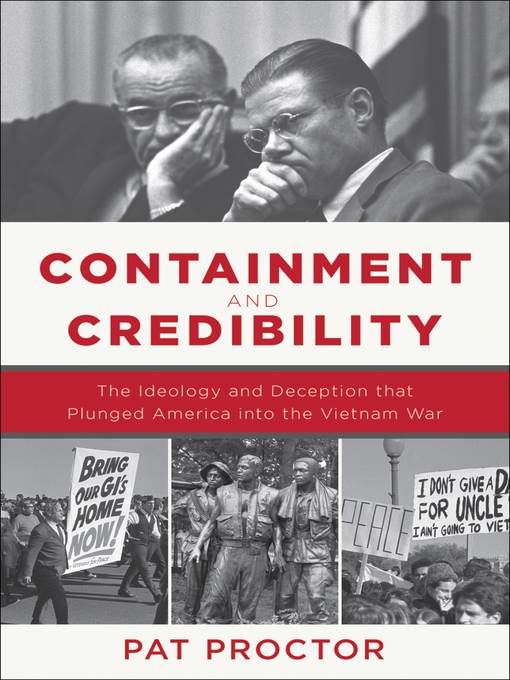
Containment and Credibility
The Ideology and Deception that Plunged America into the Vietnam War
کتاب های مرتبط
- اطلاعات
- نقد و بررسی
- دیدگاه کاربران
نقد و بررسی

October 3, 2016
Proctor, a U.S. Army veteran of the Iraq and Afghanistan wars, focuses on two aspects of American Vietnam War policy making in this long, detailed examination of why the U.S. greatly escalated the war in 1964 and why the war ended the way it did in 1975. His theory—which is not altogether new—is that President Johnson led the nation into the war by selling the American public on the simplistic and disingenuous idea that the U.S. had to stem the tide of advancing worldwide communism (containment), and that the antiwar movement’s attack on President Johnson’s and Nixon’s truthfulness in explaining their war-making strategies (credibility) was primarily responsible for ending the war. Proctor pays a good deal of attention to the 1964 Tonkin Gulf incident and the resulting congressional resolution that gave L.B.J. the authority to escalate the war. He sees L.B.J.’s actions as the ultimate presidential deception. What is new is Proctor’s sound conclusion that the Vietnam War containment and credibility framework has had a lasting influence on U.S. foreign policy. Today’s “War on Terror,” he says, is still being fought with a Cold War-era foreign policy ideology, which could be a recipe for “a century of costly and fruitless warfare across the globe.”

October 1, 2016
Lieutenant Colonel Proctor (Task Force Patriot and the End of Combat Operations in Iraq), a veteran of the wars in Iraq and Afghanistan, details the events leading up to the Vietnam War and the change in strategy of war opponents. Proctor is careful to draw parallels among those events and more contemporary battles with ISIS and terrorism. In the 1960s, American politicians understood the desire to monitor the spread of communism. The 1964 Gulf of Tonkin incident was used by then president Lyndon Johnson to justify the Vietnam War. As the conflict continued, opponents switched from suggesting the United States refocus its efforts to contain communism to clearly attacking Johnson's credibility, namely that he lied about the events at the Gulf of Tonkin. Ongoing opposition to the war ultimately resulted in Richard Nixon's election in 1968. Proctor warns that the current ideology of Americans defeating terrorists abroad to prevent them from attacking U.S. soil could potentially lead to a century of unnecessary and violent warfare. VERDICT Military historians will find in this work a fresh take on the Vietnam War, as well as its warnings for current conflicts.--Jason L. Steagall, Gateway Technical Coll. Lib., Elkhorn, WI
Copyright 2016 Library Journal, LLC Used with permission.

























دیدگاه کاربران